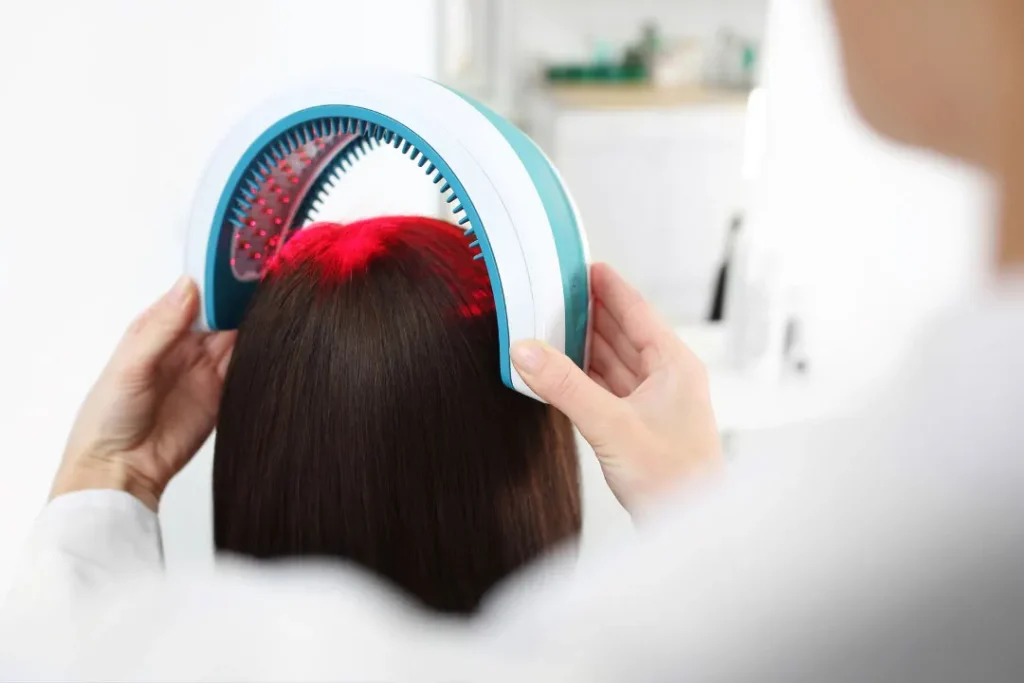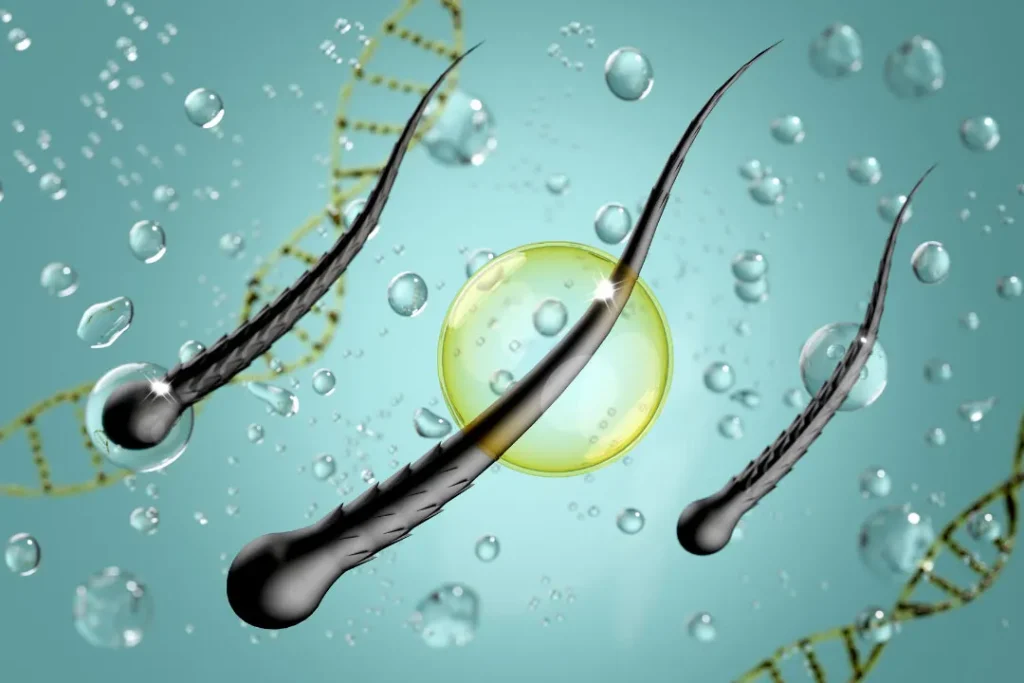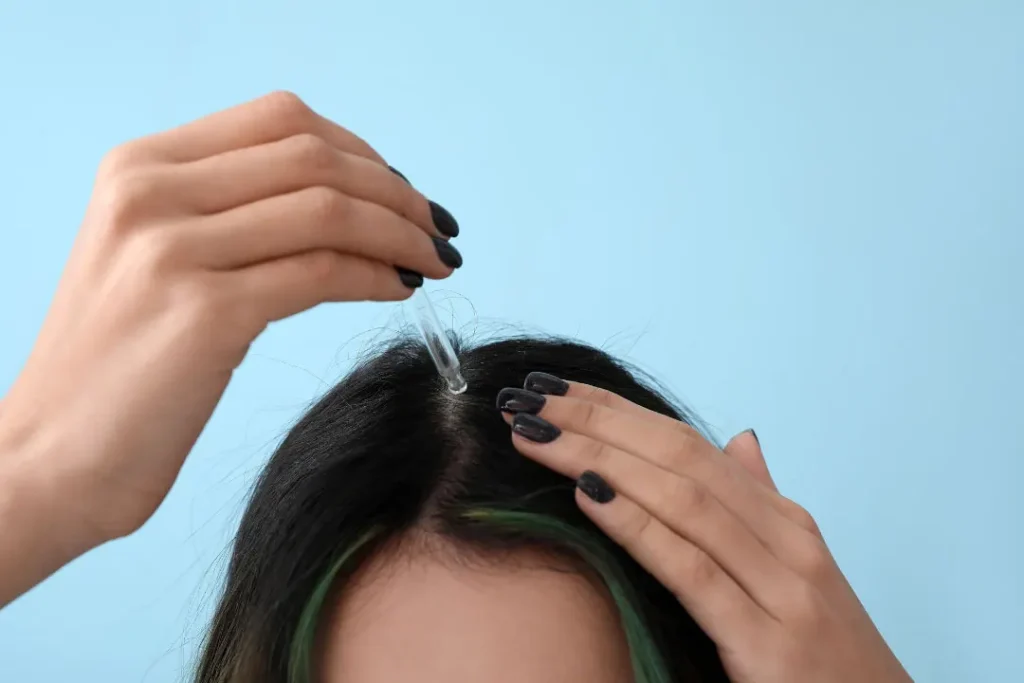Hair loss has a profound impact on self-esteem and emotional well-being. Embrace the potential for growth, resilience, and self-discovery as you embark on the path to regaining not only your hair but also your self-assurance.
Have a falling out with your comb? You don’t have to part ways. Your hair is an important part of your identity and body image. By restoring your hair and scalp, you can also restore your self-esteem and confidence.
You May Also Like:
Tangled In Tension: Solutions for Hair Loss Due to Stress and Anxiety
More Hair Naturally® Uses Stem Cell Science to Stimulate Hair Growth
Regrow Your Hair to Reclaim Your Confidence: The Emotional Effects of Hair Loss is an original (News7Health) article.
Hair today, gone tomorrow
More than 80 million Americans experience hair loss and hair thinning… most of them men, and most of them before the age of 35. The reasons vary and include:
- Aging: Hair strands naturally become smaller, finer, and have less pigment, sometimes turning gray.
- Heredity: Genetics play a huge role in hair loss for both men and women. Androgenic alopecia in women and male-pattern baldness can be inherited from both parents.
- Hormone or testosterone changes: Hair follicles are sensitive to dihydrotestosterone (DHT). Hair loss in men may be the result of lower testosterone levels and higher levels of the enzyme that converts testosterone to DHT. Female hair loss can also be caused by a hormonal imbalance. This is common after childbirth and menopause.
- Medical conditions: An under-active or over-active thyroid is a common cause of hair loss. Those who suffer from endocrine disorders, high blood pressure, heart disease, or polycystic ovaries are also at risk.
- Medications: Blood thinners, beta-blockers, antidepressants, cholesterol-lowering drugs, anti-inflammatory drugs (NSAIDs), hormone-related drugs like thyroid meds, hormone replacement therapies, steroids, and chemotherapy can all lead to hair loss.
- Poor nutrition: Hair is made of protein, and needs protein and amino acids to continue growing. A diet deficient in protein and vital minerals like zinc, copper, and iron is a recipe for hair loss.
- Stress: Extreme stress or telogen effluvium is more common in women who’ve experienced a sudden change. Proper treatment can restore hair growth in about 3 months.
- Overdoing haircare: Excessive dying, permanent waves, and too much styling and hair drying can damage the hair follicles to the point where they stop producing. Some hair straighteners and shampoos contain formaldehyde, which can damage hair follicles.
Sudden hair loss can cause more than a few fewer strands, including:
- Depression: Hair loss and depression are often linked. Alopecia often leads to body dysmorphic disorder (BDD). Some anti-depressants, such as Zoloft, can also cause hair loss.
- Anxiety: Hair loss also has a symbiotic relationship with stress and anxiety. Many people see hair as a sign of virility and sexuality and therefore become anxious when losing hair. Hair thinning is also a symptom of anxiety.
- Frustration: It’s easy to lash out when others ask you about sudden hair loss.
- Loss of energy: The social phobia and paranoia that accompany hair loss often sap people of their energy and desire to partake in social events and hobbies.
- Loss of libido: Hair loss often makes women feel less attractive, so they tend to shy away from sex. Men who resort to the drug finasteride may experience a loss in sex drive.

A breath of fresh hair
Rest a-sheared, all is not lost when you start losing hair. Once you’ve figured out the cause, it’s easier to search for the cure. There are a number of treatments available, including:
- Medication: Over-the-counter medications such as minoxidil (better known as Rogaine) often help regrow hair, but the side effects sometimes include unwanted hair on the side of the face. Finasteride and spironolactone are prescription drugs geared toward men – but these also come with possible side effects, including a decreased sex drive.
- Medication changes: Ask your doctor to change your medication if your anti-clotting, cholesterol-lowering drug, antidepressant, or birth control pill is causing your hair to thin.
- Laser Therapy: A low-level LED laser light can stimulate cellular activity in the follicles to reduce hair loss and encourage growth. You can find these laser lights in combs and helmets. Studies say more research is needed to determine long-term effects.
- Dietary changes: Eat healthy meals that contain plenty of protein, zinc, copper, iron, and antioxidants. Consider a supplement that provides the nutrition needed to promote hair growth.
- Change hairstyles: Avoid hairstyles that pull hair too tightly and damage the hair follicles.
- Hair transplants: This only works if there are areas of thicker hair that can be moved to the thinner or balding areas. Up to 80% of the transplanted hair will continue to grow over time, but be aware: Transplanted hair will also thin over time.
- PRP treatments: Platelet-rich plasma injections use components of your own blood that are injected into your scalp to stimulate hair growth. The treatment can be costly – up to $5,000 for three monthly treatments. You’ll also need yearly follow-ups.

Restoring your hairmony
Your hair is one of the first things people notice about you. A healthy head of hair tells people you care enough to take care of yourself and your appearance. But it’s not just about vanity. Just as Samson needed his hair to give him strength, we rely on our hair to preserve our body heat. Your eyebrows and eyelashes protect your eyes from extreme light and dust, as does the air in your nose and ears.
We found several over-the-counter products that offer a so-called “quick fix,” but only one hair care company that offers an all-natural product. More Hair Naturally® 9 provides a stem cell therapy for hair loss that uses plant-based stem cells. They use mountain ginseng root and bamboo cells along with adipose-derived stem cells. This spray includes vital ingredients – such as quinoa – that contain the nine essential amino acids needed to grow hair (see above). More Hair Naturally 9 also includes zinc and copper to strengthen blood circulation. Combined, these ingredients help repair, block DHT on the scalp, and help promote healthier, thicker, and stronger hair growth.
More Hair Naturally is also the only company that follows up with one-on-one counseling to make sure their product works. “We want to set everyone up to succeed, so we need to find out people’s needs so we can establish realistic expectations,” says Founder and CEO Mahryah Shain. “A woman going through postpartum hair loss won’t need a whole-year program: she may only need three to six months of treatment.”

Less stress, more tresses
It’s easy to unlock the secret of thicker locks. Instead of trying the comb-over or more expensive alternatives, consider lowering your stress level and using the natural ingredients Mother Nature provides. Instead of giving yourself a perm, give yourself permanent hair. It won’t be long before someone compliments your hair, and you can say, “Thanks, I grew it myself.”

Further reading for additional reference:
Cleveland Clinic: Hair Loss
National Library of Medicine: Psychology of Hair Loss Patients and Importance of Counseling
Mount Sinai: Hair Disorders
National Library of Medicine: The Impact of Alopecia Areata on Sexual Quality of Life
Important Note: The information contained in this article is for general informational purposes only, and should not be construed as health or medical advice, nor is it intended to diagnose, prevent, treat, or cure any disease or health condition. Before embarking on any diet, fitness regimen, or program of nutritional supplementation, it is advisable to consult your healthcare professional in order to determine its safety and probable efficacy in terms of your individual state of health.
Regarding Nutritional Supplements Or Other Non-Prescription Health Products: If any nutritional supplements or other non-prescription health products are mentioned in the foregoing article, any claims or statements made about them have not been evaluated by the U.S. Food and Drug Administration, and such nutritional supplements or other health products are not intended to diagnose, treat, cure, or prevent any disease.

